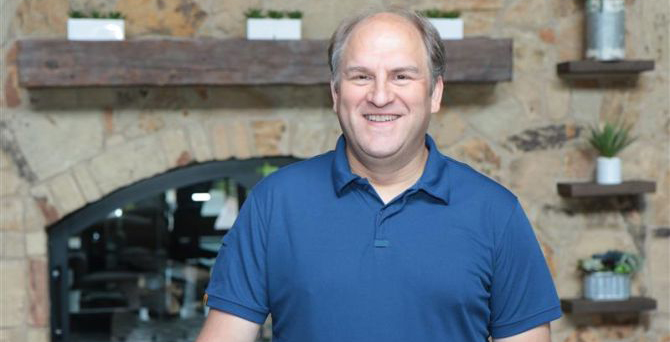A veritable who’s who of religious groups have filed joint friend-of-the-court briefs in a U.S. Supreme Court case involving a Christian postal worker claiming religious discrimination by having to work Sundays to deliver Amazon packages.
Baptist Joint Committee for Religious Liberty is among the dozens of faith-based organizations to take Gerald Groff’s side in Groff v. DeJoy, in which the justices will hear oral arguments April 18.
“We joined a brief that was led by attorneys for the Church of Jesus Christ of Latter-day Saints. The brief also was joined by the United States Conference of Catholic Bishops, the National Association of Evangelicals, the Ethics and Religious Liberty Commission of the Southern Baptist Convention and the Anti-Defamation League,” BJC General Counsel Holly Hollman said during a recent episode of the committee’s “Respecting Religion” podcast.
At stake is the application of Title VII, a provision of the 1964 Civil Rights Act requiring employers to reasonably accommodate employee religious practices. Justices also will reconsider Trans World Airlines Inc. v. Hardison, a 1977 ruling that enables employers to easily circumvent religious accommodations with minimal evidence of “undue hardship.”
The practice first became an issue for Groff in 2013 when the U.S. Postal Service signed a contract with Amazon to deliver packages on Sundays.
“Mr. Groff in some ways finds himself in the minority here. He is one of those 18% of Christians who do consider it essential to his faith to completely rest on his sabbath and not engage in work,” BJC Executive Director Amanda Tyler said. “When he took the job (in 2012), the USPS was not delivering mail on Sundays, so he didn’t see this job as being in conflict with his religious observance.”
“He is one of those 18% of Christians who do consider it essential to his faith to completely rest on his sabbath and not engage in work,”
Initially, Groff’s schedule as an auxiliary postal worker was unaffected by the arrangement with Amazon because he worked at a Pennsylvania facility with a large enough staff to cover all weekend shifts. When Amazon increased its orders, Groff moved to a postal location that wasn’t engaged in Sunday deliveries, she said.
“But then in 2017, that more rural facility started doing Sunday delivery, and it was then that he started to come into conflict with his religious observance and his ability to complete the job with the USPS,” Tyler said.
When finally directed to work on Sundays or face termination, Groff quit and sued the postal service for religious discrimination under Title VII and challenged the Hardison language which “basically made it very easy for employers to get out of their duty to provide a reasonable accommodation,” Hollman added.

Amanda Tyler and Holly Hollman
Tyler said the justices will be scrutinizing the standard for “undue hardship” put forth in the 1977 case — and which formed the basis of Groff’s defeats in the lower courts.
“The Third Circuit Court noted that this is not a difficult threshold to pass,” Tyler explained. “And some examples of undue hardships from the past have included negative impacts on the employer’s operations, such as on productivity or quality, personnel and overtime costs, increased workload on other employees, and reduced employee morale. It’s just not difficult for an employer to show that at all, so it’s not surprising if that’s the standard the courts are applying.”
Hollman said she expects the high court will revisit the standard of proof employers present when denying religious accommodations. “It makes sense that the employer would have to show that providing an accommodation has some real negative impact on the employer’s business in order to satisfy undue hardship. And so, I really think this case is going to get the court to talk about this standard, this Hardison standard, and how it is at odds with the statutory language.”
BJC and other faith groups that have filed amicus briefs in support of Groff share a desire for the reestablishment of religious accommodation “to its true statutory meaning,” she said.
In fact, Tyler said “there has been an outcry from the religious liberty community” since 1977 when the standard was set far too low for employers in Hardison. “We certainly think it should have been done a long time ago, which led us to join this amicus effort, and we joined with a pretty broad diversity of groups on this brief.”
Others filing friend-of-the-court briefs for the plaintiff include numerous Hindu, Sikh, Muslim, Jewish, Catholic, evangelical Protestant and faith-based legal organizations. The General Conference of Seventh-day Adventists and the Union of Orthodox Jewish Congregations of America were among those filing joint briefs.
Hollman noted BJC hasn’t always taken similar positions on issues with the groups it has joined for Groff.
“This group of very different religious entities all came together pretty clearly on our approach in this case,” she said. “We have been on different sides of important religious liberty issues in the past few years. But we are united here, submitting this brief in support of Mr. Groff and the crucial effort to restore the robust legal protection for religious accommodation in the workplace.”
Related article:

